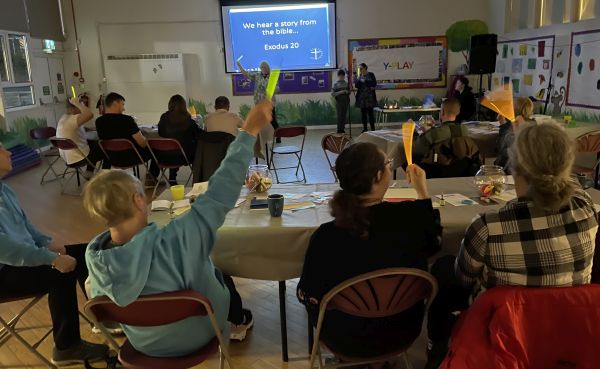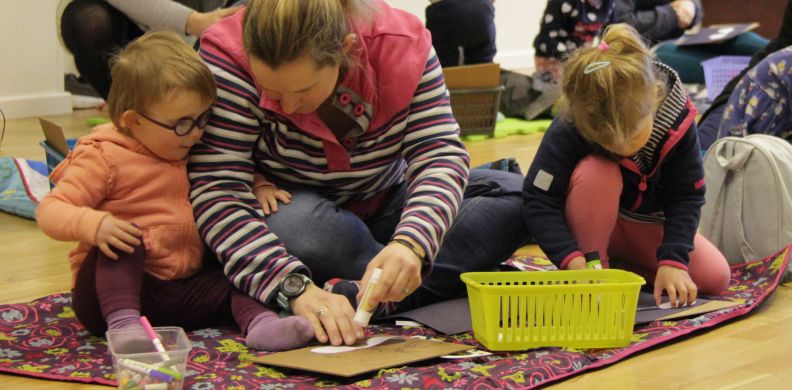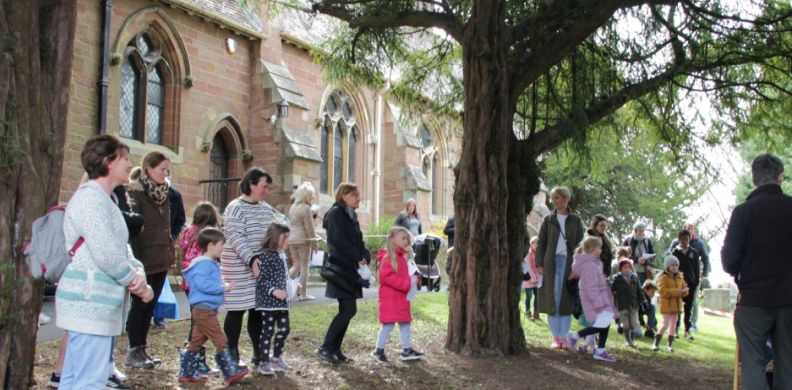 There are people of all ages in our communities who are spiritually curious and yet are not part of a church community.
There are people of all ages in our communities who are spiritually curious and yet are not part of a church community.
Some people feel there are barriers to them attending a traditional church service. They may be families with young children, they may be neurodivergent and/ or have disabilities, or they may have never been to church before and are worried about knowing what to do and when.
New Worshipping Communities (NWCs) offer a more informal and relaxed form of worship, sometimes in a different setting to a church which members of the community may be more familiar with and feel is more accessible. Having a NWC as part of your mix of services helps ensure a range of ways for people to come to faith and worship God.
Definition
One of our four new priorities as part of our vision to grow as kingdom people is to create 100 New Worshipping Communities by 2030. To aid us with understanding what counts towards this target, we have an official definition:
- New - The aim of a newly created worshipping community is to reach people who are currently not attending church (in the previous 2 years) and to make new Christian disciples.
- Worshipping – The purpose of the community is the worship of Jesus Christ and to help people grow in their faith. Its practices will involve initially two or more of the following; prayer, scripture, praise, sacrament, and acts of service.
- Community – Meets together in person or online regularly (ie at least once a month), is connected with the wider Church through the parish church, deanery or diocese.’
Download our diocesan guide to New Worshipping Communities, which also includes this form to complete to register your NWC.
NWC examples
There are already several New Worshipping Communities in the Diocese. Here are some examples:
Inside
Inside examples such as 'Early Birds'. Find out more.
Outside
Outside examples such as 'Forest Church'. Find out more.
Schools
School related, such as those utilising ISingPop songs. Find out more.
Funding
If you are thinking of setting up a New Worshipping Community there is funding available via the Kingdom People Fund (for grants of up to £1000) or The Healthier Churches Fund (for grants of up to £10,000). Click on the links below for more information on how to apply.
Kingdom People Fund
Healthier Churches Fund
Resources
Helping people come to faith - 2022 Talking Jesus report
Talking about Jesus in a relaxed atmosphere is an important part of New Worshipping Communities and here is a resource that can help. This ground-breaking 2022 'Talking Jesus' report shows the state of faith in the UK, how people come to faith in Jesus and how we, as the church, can talk about Jesus more effectively with our friends and in our community. https://talkingjesus.org/research
We Are One Body Because We all Share in One Bread: Pioneering and the Eucharist: Read a book chapter about a new worshipping community’s journey with holy communion
Support
If you are thinking of setting up a New Worshipping Community in your parish, New Worshipping Communities Enabler Kim Brown is on hand to offer support and advice. Please visit the Transformation Support Hub page for her contact details.
NWC Training Morning
On 30 January 2025, clergy and lay ministers were invited to a Bishop's teaching morning with the Revd Dr Mark Earey, Director of Anglican Formation and Tutor in Liturgy and Worship at the Queen’s Foundation in Birmingham. Mark explored what makes worship Anglican and where it is possible to introduce ‘faithful improvision’ to the liturgy to enable it to be relevant to the context while still remaining within the rules of the Church of England. You can watch the three sessions below.
Download Mark Earey's slides to follow along as you watch.
1. Mark Earey discusses what makes worship Anglican:
2. Mark Earey talk about where there is flexbility when developing liturgy for NWCs:
3. Kim Brown and Delia Stokes explain the importance of good safeguarding practice when setting up a NWC and Kim launches a new Guide to NWC for parishes. Janet Fox explains some of the other support available to clergy.


